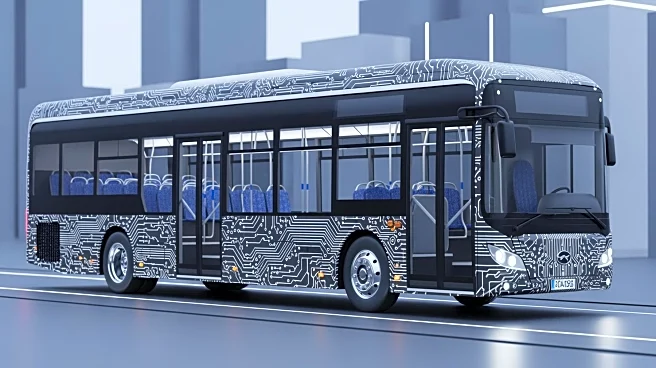What's Happening?
Denmark and Norway are investigating potential security vulnerabilities in Chinese-made electric buses, specifically those manufactured by Yutong. Concerns have arisen that these buses, which can receive
software updates remotely, might be susceptible to being immobilized or commandeered if tensions with China escalate. The Danish public transport provider Movia and Norwegian operator Ruter have raised alarms about the ability of these buses to be remotely deactivated, posing a risk to national security. This issue is part of a broader concern in Europe regarding dependency on Chinese technology, following similar apprehensions about Huawei's 5G networks.
Why It's Important?
The investigation into the security of Chinese electric buses highlights the growing unease in Europe over reliance on Chinese technology. As electric vehicles become more prevalent, the ability to remotely control these vehicles raises significant security concerns. This situation underscores the delicate balance European countries must maintain between benefiting from Chinese technological advancements and safeguarding national security. The potential for remote deactivation of public transport systems could have severe implications for urban mobility and infrastructure security, prompting governments to reassess their technological dependencies.
What's Next?
Denmark and Norway are expected to implement stricter cybersecurity measures for future bus purchases and collaborate with national authorities to establish clear cybersecurity requirements. These steps aim to mitigate the risks associated with remote access capabilities in public transport systems. The broader European response may involve increased scrutiny of Chinese technology and infrastructure, potentially leading to policy changes or restrictions on imports. The situation could also influence ongoing trade negotiations between China and the European Union, as security concerns become a pivotal factor in diplomatic relations.
Beyond the Headlines
The investigation into Chinese electric buses reflects a broader geopolitical tension between Europe and China, where technological dependency is increasingly seen as a vulnerability. This development may prompt a reevaluation of international trade policies and encourage European countries to invest in domestic technology solutions. The ethical implications of relying on foreign technology for critical infrastructure are significant, as they challenge the sovereignty and security of nations. Long-term, this could lead to a shift towards more localized production and innovation in the tech industry.










